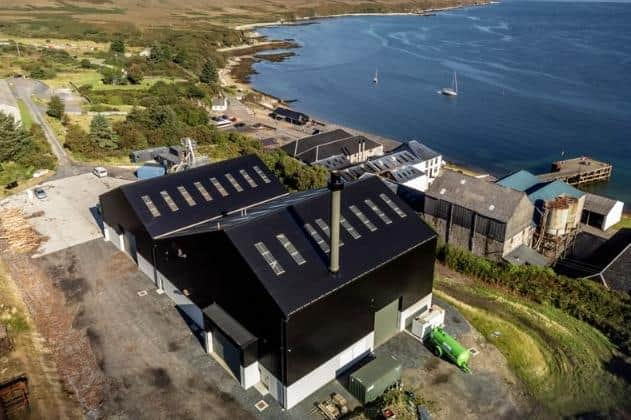Urgent call for green experts to help Scottish planners deliver new vision for climate-friendly future
The call comes in the week the fourth National Planning Framework (NPF4) – the first to put climate change and the nature crisis at the heart of the process – was formally adopted at Holyrood.
And it has been made just days after a warning from the Accounts Commission that Scotland's councils face their “hardest spending choices in years” to make up for budget shortfalls, potentially being forced to axe services as they struggle with inflation, the rocketing cost of living and the impact of Covid.
Advertisement
Hide AdAdvertisement
Hide AdThe new framework lays out the policies local authorities must follow to decide future planning applications up to 2045, including where to site new housing, schools, roads and industrial facilities.
It advises all planning decisions must now give “significant weight” to the climate and nature. Development proposals must minimise greenhouse gas emissions and enhance biodiversity.
Renewables projects of all types will be backed, while protecting national parks and national scenic areas from inappropriate development. Protections for ancient woodlands and veteran trees have been strengthened, with schemes that impact these habitats not supported. It also includes proposals for the creation of nature networks that will provide corridors for wildlife and natural regeneration.
Members of Scottish Environment Link, a coalition of 40 charities focused on ecological sustainability, have welcomed the new framework, but have expressed concern over the ability of resource-poor planning authorities to successfully achieve the goals without expert help.
They say planning authorities should be given extra funding to hire officers trained in biodiversity and ecological science to ensure delivery.


“NPF4 offers a real opportunity for meaningful change in the planning system and a shift to development which helps meet our climate change goals and nature recovery aims,” Esmé Clelland, senior conservation planner and convener of Link’s planning group, said.
“Every local authority needs adequate resources and planning staff who are supported by experts in specialist areas such as biodiversity, protected species and trees. NPF4 will be a key consideration in every planning application decision in Scotland and will shape local development plans in the future. The way it is interpreted and implemented will be critical.”
A 2022 survey of local planning authority staff found nearly a quarter had no ecological resource or expertise available. A third said there had been cutbacks to such provision over the past five years.
Advertisement
Hide AdAdvertisement
Hide AdHighland Council said it was actively investigating how to most effectively implement the planning policy and ensure a “fair and consistent” application across the region. However, it also expressed concern over expertise.
“The effective delivery of NPF4 to conserve, restore and enhance biodiversity will inevitably require additional resources and expertise, alongside the upskilling and training of existing officers,” a spokesperson said. “Staffing levels within the majority of local authorities will not be at the necessary levels to meet this ambition.”
Glasgow City Council agreed it was likely additional specialists would be required to realise the NPF4 objectives, either through new staff or training for existing workers.
Stuart Mearns, director of place at Loch Lomond & The Trossachs National Park Authority, said while the body had staff with expertise in areas such as landscape and ecology, it relied on “specialist advice from partners whose resources are increasingly stretched, such as local authorities”.
"The new National Planning Framework very much supports gains for climate and nature, but like all planning authorities with these new policies, we may need access to additional resources or to further develop our own expertise,” he said.
Comments
Want to join the conversation? Please or to comment on this article.